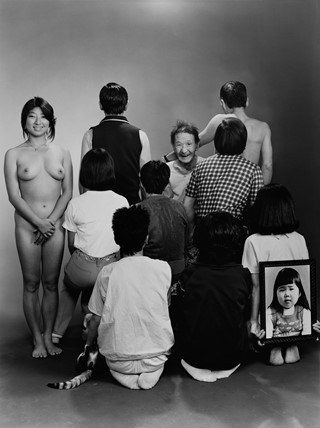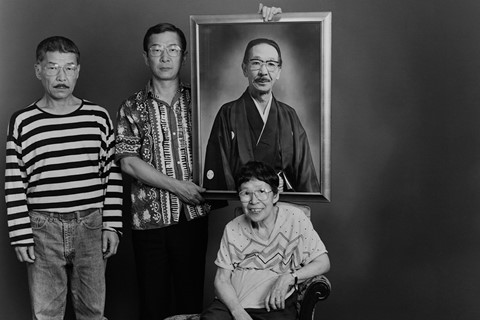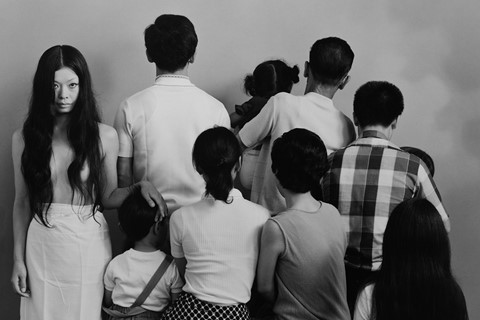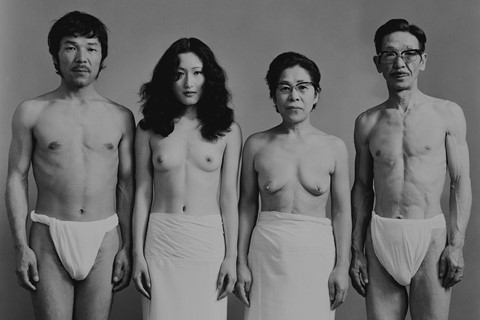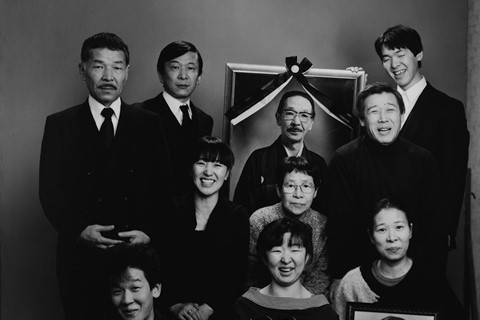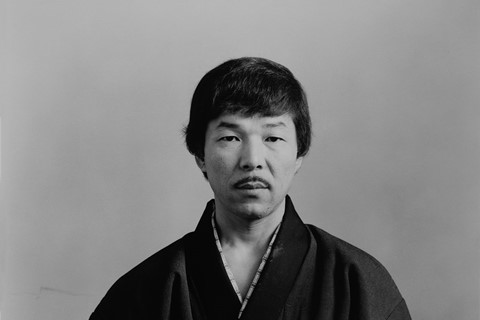As Family (Kazoku) by Japanese photographer Masahisa Fukase is republished by MACK, we look back at the story behind the now-seminal series
Masahisa Fukase is a master of modern Japanese photography, celebrated for his intense and intimate portrayals of domestic life, his obsessive portraits of the women he loved, and his dark, brooding 1986 photo book Ravens, which charts a melancholy train journey to his hometown and is considered a masterpiece of the medium. Alongside compatriots Shomei Tomatsu, Daido Moriyama and Nobuyoshi Araki, he upended the notion of photography as a prescribed craft and elevated it to an art form.
Fukase’s own family were photographers in the traditional sense, proprietors of a portrait studio in Bifuka, Hokkaido, where Fukase grew up (such studios were common in Japan, capturing families on occasions like weddings). In an essay from 1991, Fukase – who left Bifuka to study at the Nihon University College of Art in Tokyo – wrote: “I had to choose whether I wanted to be a shashin-shi, a ‘studio’ photographer, or a shashin-ka, an art photographer in the modern sense.” The latter won, but it seems he never truly escaped the pull of home – or the studio which had defined his family life.
By 1971, a decade after leaving for the metropolis, he returned to his hometown and began staging a number of family portraits which combined his own creative sensibilities with the formal set-ups he had watched his father Sukezo painstakingly prepare, for customers searching to immortalise major life events. The resulting series, titled Kazoku (Family), spanned years, capturing love, life and loss among his relatives. Each shot was taken on the large-format Anthony plate camera that symbolised Fukase’s difficult childhood memories as a reluctant member of the family business; from the age of six, he was tasked with washing the prints “in a little dark room that was warmed by a charcoal brazier and always filled with the acrid smell of vinegar”. His mother Mitsue, who was in charge of printing the photographs, would often pass out from carbon monoxide poisoning.
Although operating within the confines of the Fukase Photographic Studio (which his younger brother Toshiteru had taken over), the artist indulged what he calls “a rather pretentious streak” while taking these shots, by incorporating semi-clad actors and dancers alongside his family. In other instances, his wife Yoko wears nothing but a koshimaki – a kind of cotton underwear worn underneath kimonos – while the rest of the relatives turn their back on the scene. The resulting images are playful but often unnerving; a collision of tradition and modernity in full force.
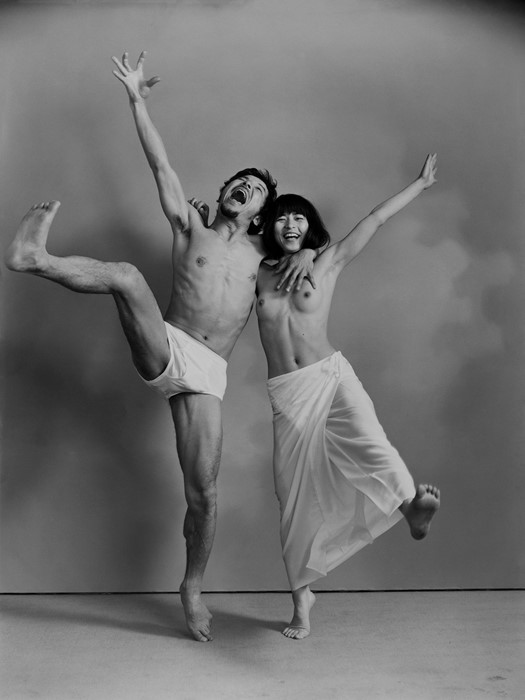
It is clear that these earlier images are also defined by their numbers. The family is thriving, with siblings, nieces, nephews and in-laws all crowding around Sukezo and Mitsue. Three Fukase generations – and occasionally the family cat – indulge in these more unusual compositions. However, following a decade hiatus which might have been related to his father’s ailing health, Fukase’s later images are marred by loss, such as a photograph of his sister Kanako clutching a commemorative picture of her daughter Miyako, aged five. Two years later, in 1987, this image is replicated, with a picture of Sukezo too, who had also passed away at this point. The final shot is sombre, with the elderly Mitsue sat hunched on a stool, accompanied only by her sons and the image of their father. It appears to mark the end of an era and forewarns of the family business’ imminent closure. Soon after, the photographer suffered a severe fall that cut his own career brutally short.
What began as creative experimentation, nevertheless became a poignant, emotional record of both the Fukase family and the business that defined them. One could view them as a comforting archive, but the photographer’s outlook was decidedly more macabre: “In this world time passes inexorably, and everyone will die. It seems to me now that all of us – old, young, children, even I myself – are like nothing so much as photographs stuck inside a very old photograph album.”
Family (Kazoku) by Masahisa Fukase, published by MACK, is out now.
